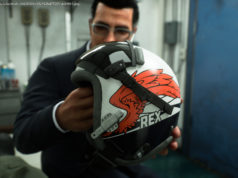Pop music, HD remakes and the DualShock controller may have prevented your favorites from making the PlayStation Classic lineup. Here’s why you won’t see Resident Evil 2, Crash Bandicoot and others on the retro console.
Today, Sony revealed the complete lineup of games included in the PlayStation Classic. The 20-game collection has been met with a lukewarm reception. Where Nintendo’s recent plug-and-play retro consoles include best sellers, critical darlings and cult classics, Sony’s hardware has many glaring software omissions.
Sony was perhaps doomed from the start in curating a perfect lineup for the PlayStation Classic. Let’s walk through a few potential reasons why the PlayStation Classic is missing so many of the console’s standout games.
Many PlayStation developers took advantage of the console’s disc-based storage by including licensed popular music. The soundtracks to extreme sports series like Tony Hawk Pro Skater and JetMoto spanned a variety of record labels and required complex licensing agreements.
Music rights are generally limited to a certain period of time, impacting how games are sold years after release. For example, a 10th-anniversary patch for Grand Theft Auto 4 removed songs with expired license agreements. More recently, Alan Wake returned to digital storefronts, but only after Microsoft renegotiated its music licenses. The need to renegotiate music licenses ( or remove songs and receive backlash from fans) may have prevented a number of music-heavy titles from making the cut.
Madden ’98 is arguably the best 2D football game ever made. It was produced by a third-party publisher with license agreements with both the NFL and its players. Gran Turismo was one of the highest-rated and best-selling games on the original PlayStation, launching one of Sony’s most well-known franchises. It also features 140 licensed vehicles and a handful of licensed music, including songs by The Chemical Brothers and Garbage.
The only thing more difficult than negotiating with record labels may be negotiating with international car manufacturers and the National Football League, both of which have only become more powerful in the past twenty years.
Crash Bandicoot, Spyro the Dragon, Castlevania: Symphony of the Night and Resident Evil 2 seemed like obvious inclusions when the PlayStation Classic was announced last month, but none made the final cut. All four properties are owned by third-party publishers, and all four have fresh remasters, re-releases or remakes on store shelves or in development. The publishers may have opted to keep the classic games off the PlayStation Classic to avoid cannibalizing sales of their stand-alone, upgraded software.
The strange exception to the rule is Syphon Filter, a game that, following a trademark renewal, has been rumored to receive a remake. In hindsight, that renewal may have simply paved the way for its inclusion on the PlayStation Classic.
Nintendo has made most of the best games on its consoles. In the present day, that can be frustrating for folks who want to play big, third-party releases. But for retro titles, owning the majority of a console’s best games is an advantage for Nintendo. The company doesn’t have to make as many agreements (and share as much revenue) with outside publishers to include beloved games on their retro plug-and-play systems.
Square Enix published Final Fantasy Tactics, Bushido Blade and Vagrant Story. Acclaim published Mortal Kombat 2. Capcom published Mega Man Legacy and Dino Crisis. Eidos published Tomb Raider and Legacy of Kain: Soul Reaver. Some PlayStation-era publishers no longer exist, with the rights to their games distributed to new owners, further complicating licensing.
Yes, third-party publishers like Square Enix have other games included on the PlayStation Classic lineup, but each game requires its own licensing agreement. Sony is more likely to fight for the inclusion of Final Fantasy 7 than Square Enix’s lesser-known Parasite Eve.
Most omissions can be explained away by these business challenges. Then there’s Ape Escape. Though the Sony-published series has been neglected for the past decade, it had a strong run from the late ’90s into the early ’00s. Plus, it didn’t include lots of licensed music or star pro-athletes. However, in 1999, Ape Escape was the first game to require the DualShock (or Dual Analogue) controller — a PlayStation controller with twin joysticks. The PlayStation Classic ships with a recreation of the original hardware’s joystick-less controller, making it impossible to play Ape Escape or any other games requiring the more advanced controller.






